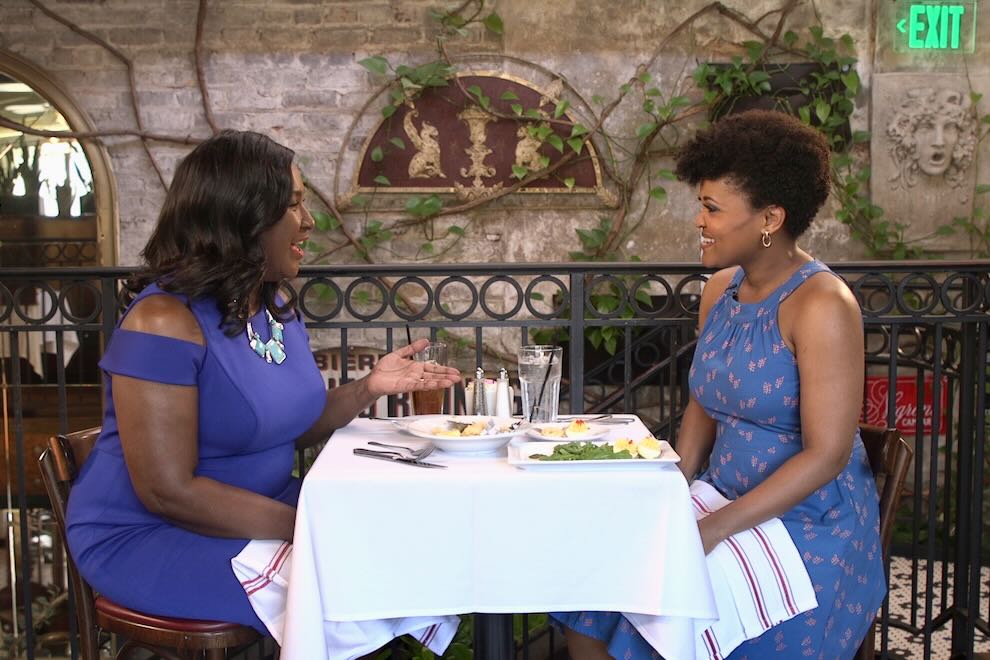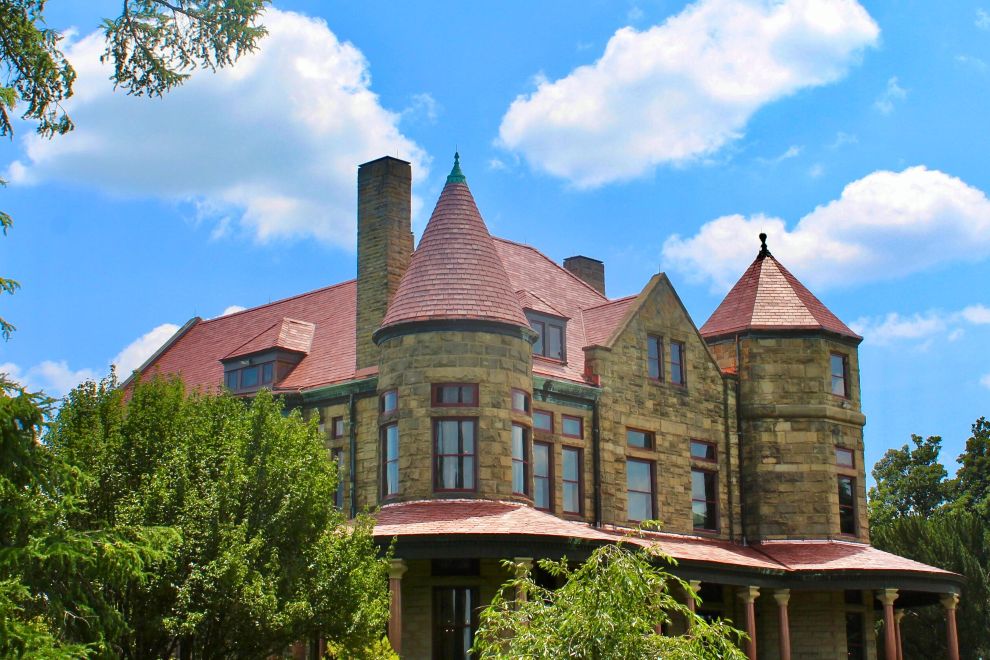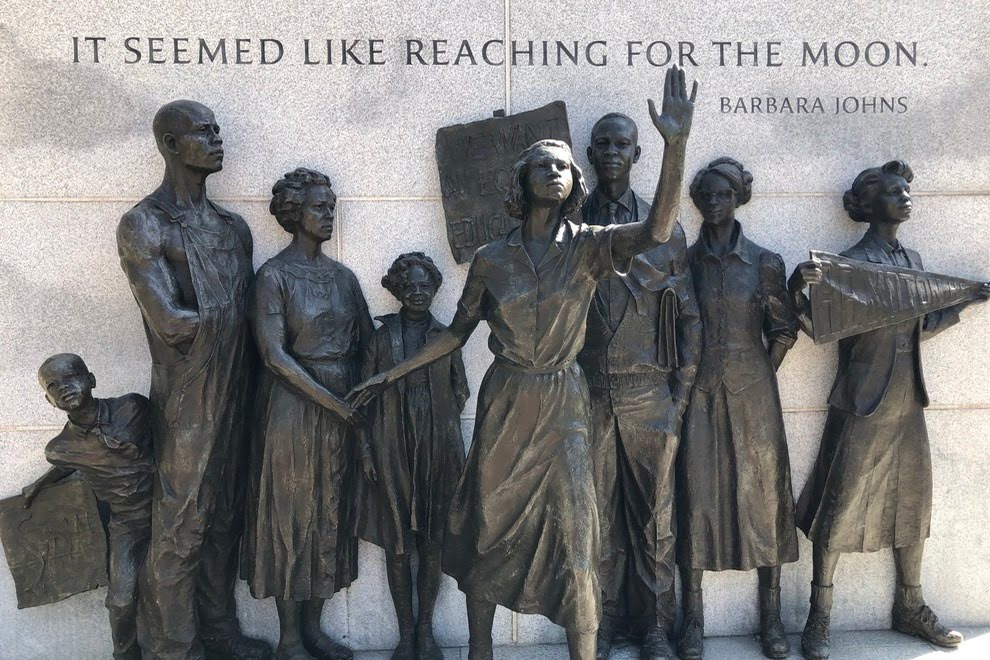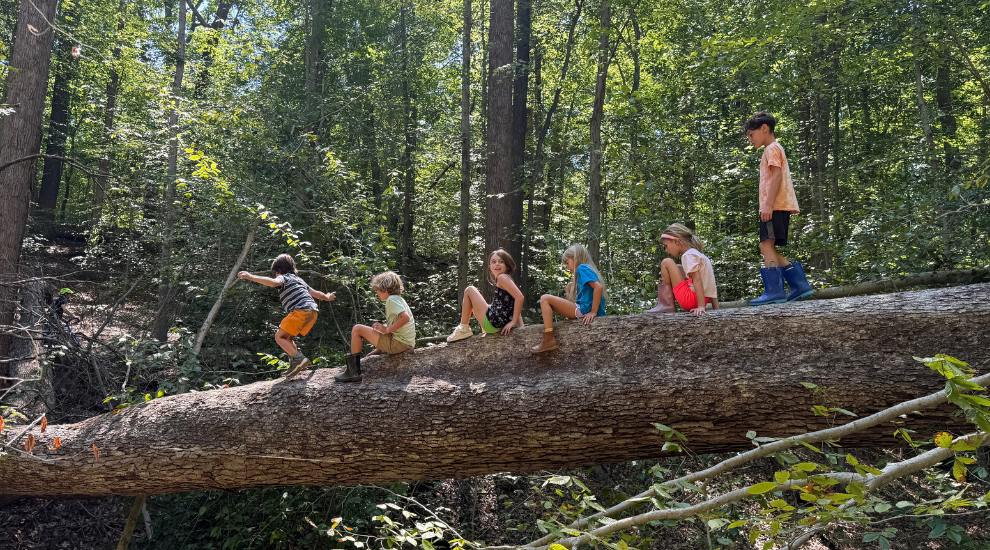Today, NBC12 viewers will see Sabrina Squire take her final bow behind the anchor desk before turning over the reigns to her successor, Karla Redditte. After thirty-seven years at the station, Sabrina feels she’s financially, emotionally, and physically ready for retirement. Her focus has been on work and raising kids, but now it’s time for her to focus on herself.
In the last few years, she has had health scares, including this winter’s life-threatening bout with the flu. “My body was saying I need attention. You need to optimize your health,” she says.
It’s a good time for her familywise as well. Her girls are on their own now, and she’s set to take on the role of grandma in October.
Karla brings her own experiences in television to the anchor desk as well as her signature high-energy personality and “Afro puff,” as she calls her pixie-style hairdo. “The whole hair thing, that is uniquely me,” she says.
Moving into the role that Sabrina has held for over three decades is a big role and a big responsibility at the same time. “When I think about everything Sabrina has done and represented over the years, it’s a lot to take in,” Karla says. “I am very excited but I also know I have room for growth and to reach that level. I remember being in graduate school in Missouri. I was never chosen to be an anchor. I look back on that experience, and to see from there to now, it makes me feel good.”
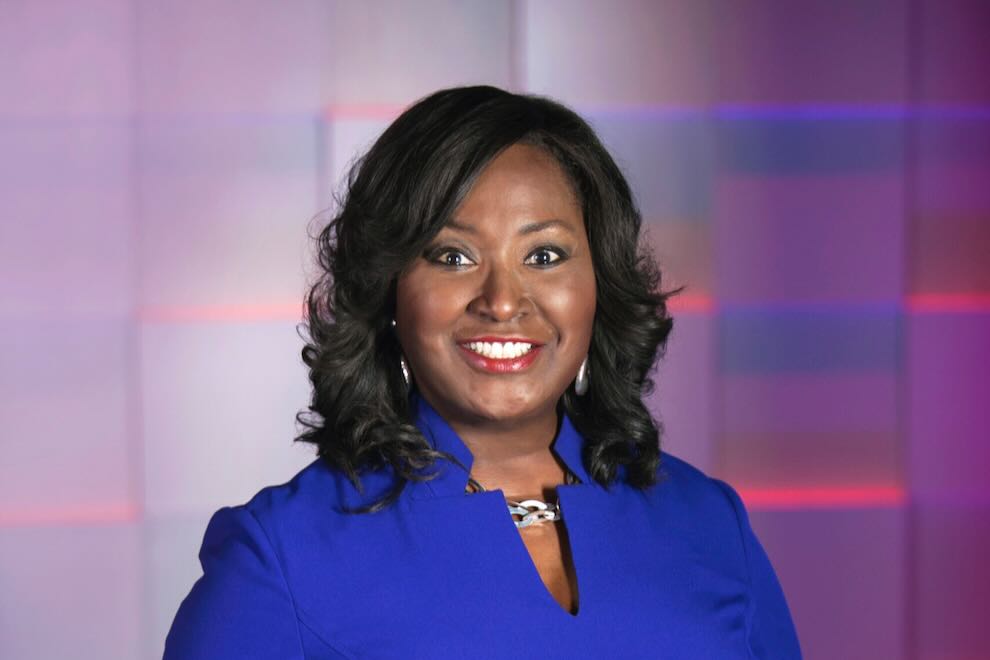
I had a chance to sit down with Sabrina and Karla at NBC12 and asked them to share some thoughts with you.
Q: What do you remember about the first day at the station?
Sabrina: My first day was an audition … I had to read something on camera. I thought “pinch me I am dreaming.” This is what I wanted to be as a girl. I grew up watching channel 12 with Sailor Bob and Bernadette Simmons, and I thought “If I can’t get the job at Channel 12, I won’t go anywhere else.”
Karla: I remember my audition day. I was flying from Huntsville, Alabama, and Frank [Jones, news director] was meeting me. He had a blue hatchback, and I brought so much luggage that he had to stuff it in. I brought my whole closet. He asked, “You are just staying overnight aren’t you?” I love that our first meeting started with a laugh. It broke the ice then and there.
Q: Karla – when did you come to station and in what capacity?
Karla: I started on September 11, 2012. I came from WAFF in Huntsville. I came in as a weekend anchor on Saturday mornings. I applied as a reporter, but by the time I got here they needed someone to fill in on Saturday mornings. I started on Monday, and by Saturday I was on the anchor desk. I did breaking news center in the mornings too.
Q: What’s it like working as an on-air personality?
Sabrina: I never thought about being an anchor. I wanted to be a reporter. I wanted the opportunity to talk to people in all types of careers and get a variety of perspectives. I was content to be a reporter. When they asked me to apply to be an anchor, I was frightened. I started on the anchor desk in 1984 at six and eleven.
Karla: I like getting emails or phone calls from different organizations that ask me to do things like read to kids, etc. I like being in the field and getting out in the community.
Q: How do you describe your style of presenting the news?
Sabrina: My big concern is being able to read the copy with some emotion and concern; being able to read it in a way the viewer can relate to and be interested in the story. Even when I was nervous, which was often, I would calm myself by saying this is the information the viewer needs, so calm yourself so they can receive this, understand this, and care about it. It was also important for me to connect with my partner. That was always big for me. For me it was never an anchor and co-anchor. We were partners and equals, and that is what we needed to convey as a team of equals.
Karla: I remember my first job in Biloxi, Mississippi. They had a talent coach come in and talk to us. I had been anchoring the weekend. She looked at me and watched what I was doing. She said, “You are trying to be someone else. Who do you love?” I said my grandfather. She said when you look in the camera you tell the story like you would to your grandfather. I don’t get too nervous now. I pretend I’m talking to my mother. I try to know the story and then tell the story in a way family and friends would understand the story.
Q: What’s a memory that always puts a smile on your face?
Sabrina: We had a city reporter who wrote a story about a criminal. His last name was Newton and I think the first name was Earl. She put in his nickname and it was “Fig.” I saw the copy, and I read Earl Fig Newton. Gene [Cox] just starting laughing. Everybody was laughing. I lost it and started laughing. For weeks, we would get people dropping off Fig Newtons at the station. One person even left a case of them.
Karla: I had finished reading a story and Eric [Philips] went to another story. I looked down at his script and saw the words check your panties (should be check your pantries). I started praying he would catch it and he didn’t. Eric realized it after he read it and we all just lost it. [This story made national headlines.]
Q: What were some of your hardest days on the anchor desk?
Karla: When I worked in Biloxi, I was there during Hurricane Katrina. After the first 24-hour cycle of being on the air a lot of us started crying. I went to school in New Orleans. Seeing it gone – that was tough, and that was my first major natural disaster as a journalist.
Sabrina: Mine was personal. I read the copy with tears streaming down my face when our chief photographer Ernie Moore died on the job and we had to talk about it. I had gone to school with his sister. He was like the guardian of every one of us that came in to the station.
Q: Over the years, you have served as a role model and a positive influence on families of color, especially girls who watch the news and see faces of women who look like theirs. Do you feel like you have been influential?
Sabrina: I think about the fact that I had someone who was that for me, Bernadette Simmons. She was smart and strong. She spoke so eloquently on air. She was so gracious. I wanted to be her. When I started thinking about a career, I called her and she gave me advice. It’s the best feeling in the world for me. There is no greater honor than to have a young black girl say I watch you on TV, and I can say you can do it, too. It means a lot to me. I try to visit as many schools in the Richmond area as I can. If you can’t give back, then what? What you are here for is to extend a hand and lift someone up. We have gotten letters from little girls who have said, “I was Sabrina Squire for a day.”
Karla: In this role we had models growing up in Memphis. I could look on the three major channels and see black women as anchors. If you see it, you can be it. If they don’t see it, they don’t know what that can be. When we go to different festivals, little girls will pat their Afro puffs and say my hair is just like yours. This is a role that we both take seriously. We know we are in that position. We try to be the best we can be in that role.
Q: Sabrina – if you could pinpoint one thing you will miss the most about the job what is it?
I am an adrenaline junkie. I will miss that electricity, that energy when you have a breaking news story. Where it’s all hands on deck and you are working as a team. I’ll miss the team spirit.
Q: Sabrina – what’s the first thing you’re going to do after you retire?
Spend some time with daughter one in New York, and in Alexandria, with daughter number two. The rest of the summer, I will be working on my fitness in the gym.


